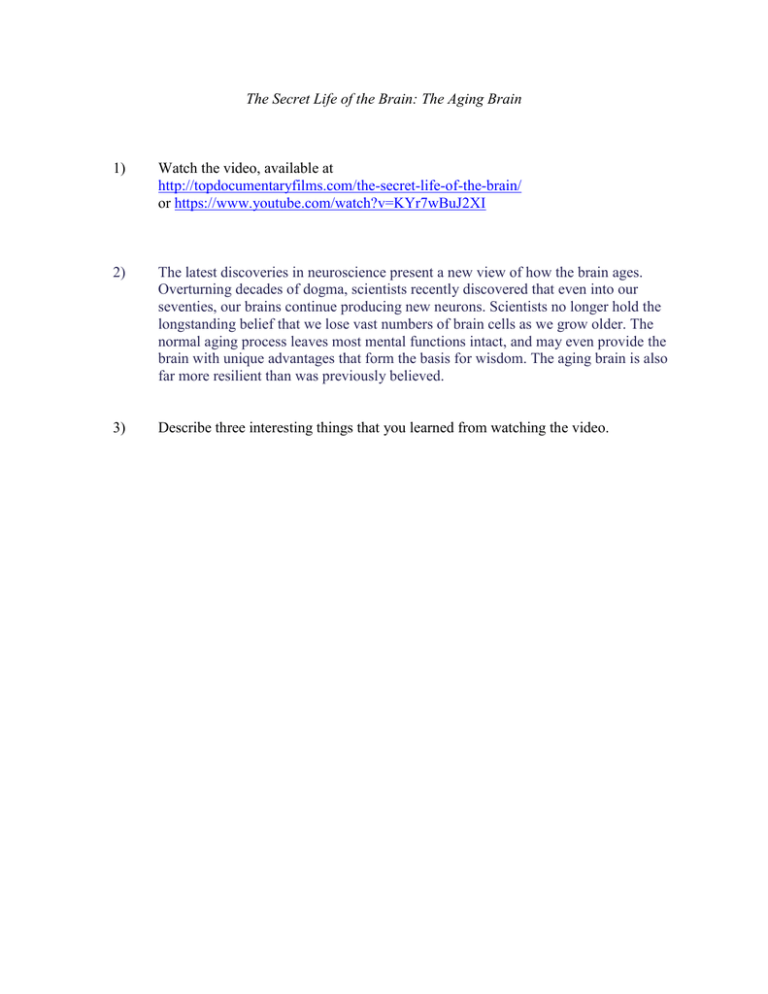The human brain is a complex and mysterious organ, responsible for controlling all of the body's functions and behaviors. Despite its importance, there is still much that scientists do not understand about how the brain works and the many ways in which it can change over time. One area of particular interest is the aging brain and the ways in which it differs from the brain of a younger person.
As we age, our brains undergo a number of changes that can affect how we think, feel, and behave. One of the most significant changes is a decline in brain volume, which can begin as early as our 20s and continue throughout life. This decline is due in part to the loss of neurons, or nerve cells, which are responsible for transmitting information throughout the brain. Along with this loss of neurons, there is also a decline in the number of connections between neurons, known as synapses, which can affect communication within the brain.
In addition to these structural changes, the aging brain also experiences a decline in the production of certain chemicals and hormones that are important for brain function. For example, levels of the neurotransmitter acetylcholine, which is important for memory and learning, tend to decrease as we age. Similarly, levels of the hormone estrogen, which plays a role in brain function and mood, tend to decrease in women as they go through menopause.
Despite these changes, the aging brain is still capable of adapting and learning new things. In fact, research has shown that older adults can continue to learn and perform new tasks just as well as younger adults, given the right conditions and support. This is known as plasticity, and it is the brain's ability to change and adapt in response to new experiences and challenges.
There are several ways that older adults can support healthy brain aging and maintain cognitive function. One of the most important is to engage in activities that challenge the brain, such as puzzles, games, and learning new skills. Regular physical exercise and a healthy diet that is rich in fruits, vegetables, and healthy fats can also support brain health. Staying socially active and maintaining close relationships with friends and family can also help to keep the brain active and engaged.
In conclusion, the aging brain is a complex and fascinating organ that undergoes a number of changes as we grow older. While these changes can affect how we think, feel, and behave, they do not necessarily mean that we are any less capable of learning and adapting to new challenges. By engaging in activities that support brain health and staying physically and mentally active, we can maintain cognitive function and live rich, fulfilling lives well into our golden years.









:max_bytes(150000):strip_icc()/GettyImages-1175464489-a071295fd2694c83ae078554eaf9a70c.jpg)